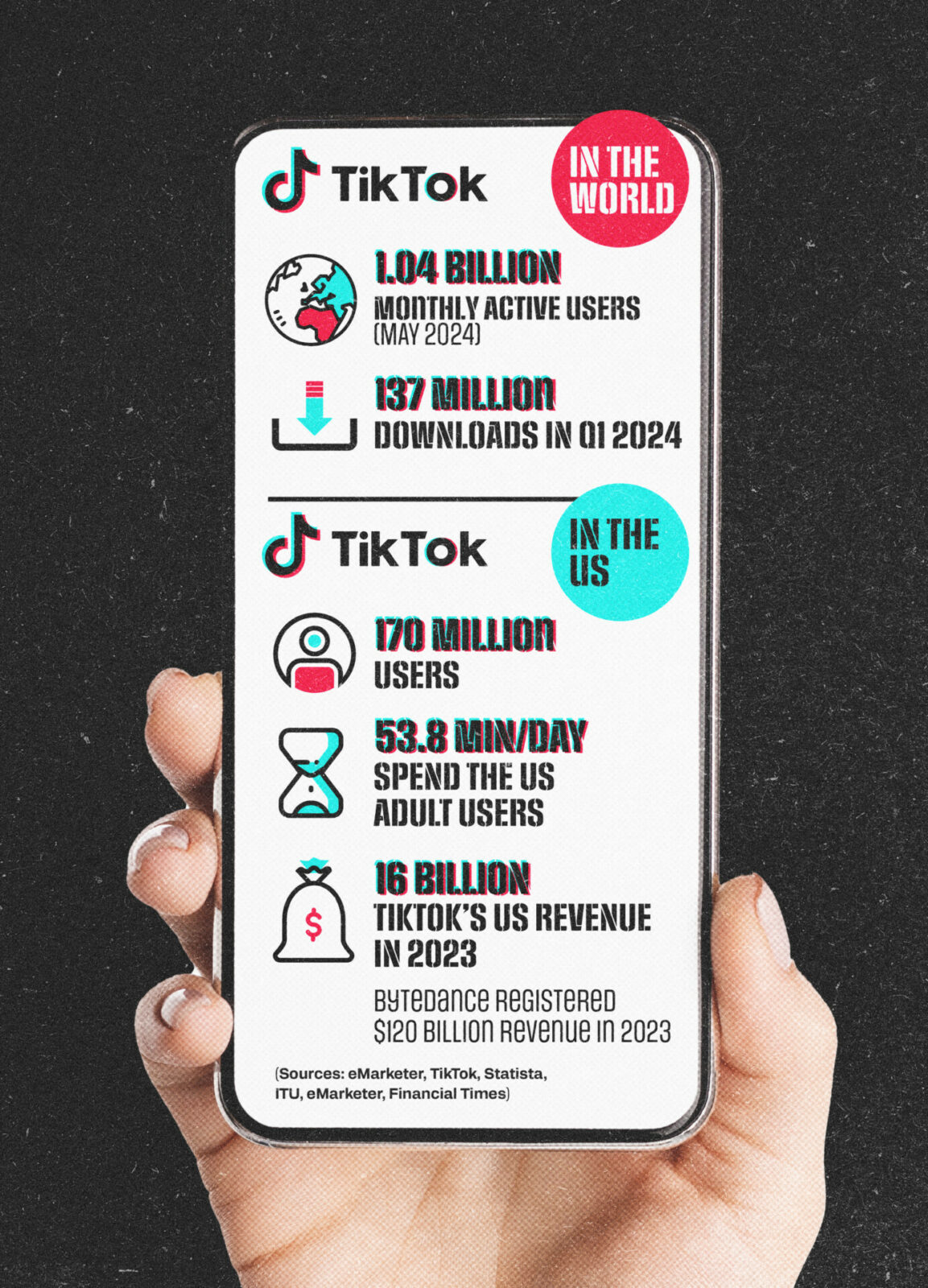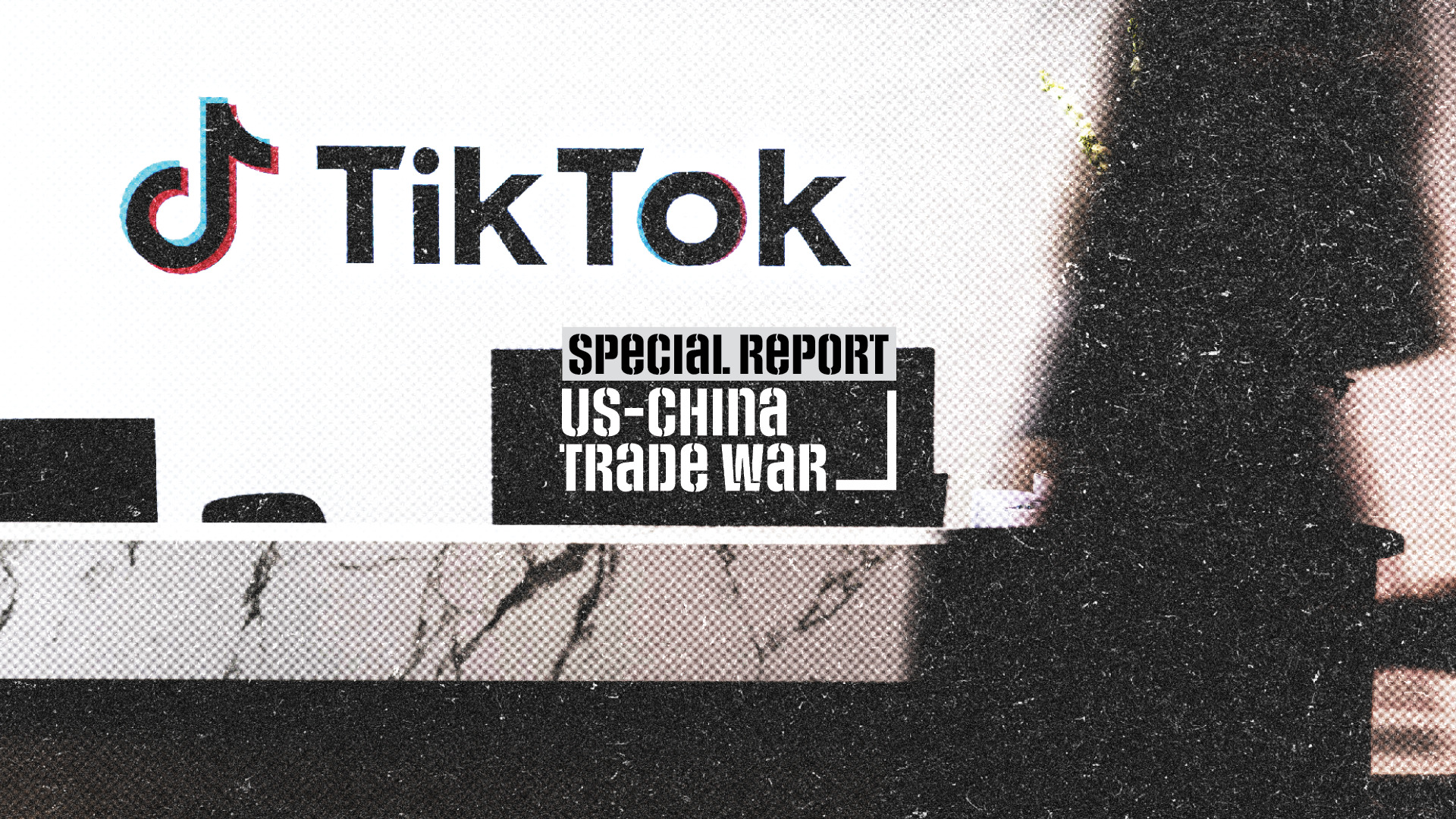Why did Joe Biden call for a ban on a social media platform? To what extent is the national security of the United States threatened by TikTok, and what would the implications of Donald Trump’s reelection be? What is the response of the Chinese company that owns TikTok to iMEdD’s inquiry?
A few hours after the assassination attempt on Donald Trump at a public campaign speech in Pennsylvania last Saturday, an excerpt from an earlier interview, in which he says that he carries guns legally and also that he does not support stricter gun laws in the United States, went viral on TikTok.
Trump’s supporters have been uploading videos on the same platform, TikTok, in the last 24 hours, recycling in different variations the conspiracy theory according to which the “establishment”, having failed to block his candidacy in the presidential elections, had only one solution –to try to assassinate him.
In the spring of 2024, Joe Biden signed a law forcing the Chinese company ByteDance, which owns TikTok, to sell the app to an American investment group or be banned within nine months –note that some of Biden’s campaigning is done through TikTok. Donald Trump made a similar decision to block the platform in 2020, though he later changed his mind.
In the US, TikTok has 170 million users, and the political cost of such a decision is not taken lightly. However, the main argument for the US blocking TikTok is that the Chinese government could gain access to sensitive information through its parent company and ultimately threaten US national security.
“The concerns are not entirely unfounded,” Plamen Tonchev, head of the Asia Unit at the Institute of International Economic Relations (IIER), tells iMEdD. “The ByteDance company’s finances are not public, which fuels suspicions that it may be sponsored by the Chinese authorities,” he adds. “Beijing’s official position is that it opposes a forced sale of ByteDance. For China, the case is also a matter of “political prestige”.

The US-China clash over electric cars

Protecting the economy or the environment? Who will win the EV race? And why are French cognac producers worried? Nicholas Lardy, a senior fellow at the Peterson Institute for International Economics and a vice chair of the National Committee on US-China Relations, speaks to iMEdD from Washington, DC.
National security
But how did a social media app that launched during the pandemic and is now one of the world’s most valuable startups find itself at the center of the US-China rivalry? In August 2020, Trump issued an executive order giving ByteDance a deadline to sell its shares to American companies. “In general, the same policy continued under Biden,” Plamen Tonchev tells iMEdD.
Last December, the Director of the FBI stated that TikTok posed a risk to US national security. Around the same time, Congress passed a law banning the use of TikTok in federal agencies. Some US states have banned its use on computers and smartphones in their public agencies.
The “Cold War-like” rivalry between the US and China, at least on the economic level, is about control of electric cars, microchips and minerals. What is the weight of the conflict over TikTok, which Washington has made a matter of great national importance, in this rivalry?
“While Sino-American rivalry is a fact, it would be inaccurate to attribute the TikTok conflict solely to some obsession of the US authorities,” Tonchev explains. “Concerns about data management and security are neither accidental nor temporary –the controversy over TikTok is part of a broader debate that is intensifying internationally.”
He recalls the objections that have been raised to Huawei’s participation in 5G networks in Western countries, and then notes that Greece does not abstain from this debate. “It is not widely known that in 2020 COSCO proposed the construction of an electronic data management system at the port of Piraeus and –in the long term– at all Greek ports,” he notes.
“While the Greek state initially did not recognize the potential risks and agreed to this initiative, the business community of Piraeus reacted strongly and refused to provide COSCO with sensitive financial data that would likely end up in the hands of Chinese competitors” he describes. The government eventually decided that the electronic system would be developed by Greek organizations.
Freedom of speech
Does all of this mean that TikTok will be removed from the phones of American citizens? “Not immediately,” wrote the New York Times in an analysis of the issue last June. “The exact mechanism for banning an app from privately owned phones is unclear.”
“Apple and other companies that operate app stores have the ability to block downloads of apps that no longer work. They also ban apps that carry inappropriate or illegal content,” told the American newspaper Justin Cappos, a professor at New York University Tandon School of Engineering. These same companies can also remove applications installed on a user’s phone. “That usually doesn’t happen,” Professor Cappos told the NYT.
A spokesman for the Chinese company ByteDance told the BBC in April that the company had taken legal action against the US authorities’ injunction because it “would trample the free speech rights of 170 million Americans, devastate seven million businesses, and shutter a platform that contributes $24bn (£19.4bn) to the US economy annually.” The same spokesperson stated that ByteDance is not an agent of China or any other country, and further noted that the company is not Chinese as 60% is owned by foreign investors.
Read the full TikTok’s legal arguements here.
“Violation of freedom of speech is ByteDance’s central argument, but this is open to debate” Plamen Tonchev, head of the Asia Unit at the IIER in Athens, tells iMEdD.
“First, because the Chinese company has a clear business rationale, and its invocation of free speech seems disingenuous. Second, because in China itself, social media is heavily monitored and the issue of freedom of speech is not even raised. It is ironic, to say the least, that the Chinese company has filed suit in the US under the local rule of law, which does not exist in China, where ByteDance is based.”
The Supreme Court
It is difficult to predict the outcome of this legal and political dispute. The US Supreme Court has traditionally upheld the First Amendment to the US Constitution, which guarantees freedom of speech.
“At the same time, however, given the conservative makeup of the current Supreme Court, it is not unlikely that parameters related to national security, and specifically data security, will be taken into account. The sharpness of the Sino-American rivalry is likely to play a role in this,” Tonchev notes.
The discussion comes back to Trump. What would be the outcome of the case if he wins the presidential election –a strong possibility after the assassination attempt against him, live on air. Trump’s original position was that TikTok should be banned in the US. Last March, however, he reversed his position and claimed the exact opposite, arguing that banning TikTok would strengthen Facebook, which he calls “the enemy of the people.”
TikTok on iMEdD
iMEdD has requested a comment on the above from ByteDance via email. A representative from the company’s communications department responded as follows:
“This unconstitutional law is a TikTok ban, and we will challenge it in court. We believe the facts and the law are clearly on our side, and we will ultimately prevail.
The fact is, we have invested billions of dollars to keep US data safe and our platform free from outside influence and manipulation. This ban would devastate seven million businesses and silence 170 million Americans.
As we continue to challenge this unconstitutional ban, we will continue investing and innovating to ensure TikTok remains a space where Americans of all walks of life can safely come to share their experiences, find joy, and be inspired.“
Read all articles and analyses of the Special Report: “US-China Trade War” here.
